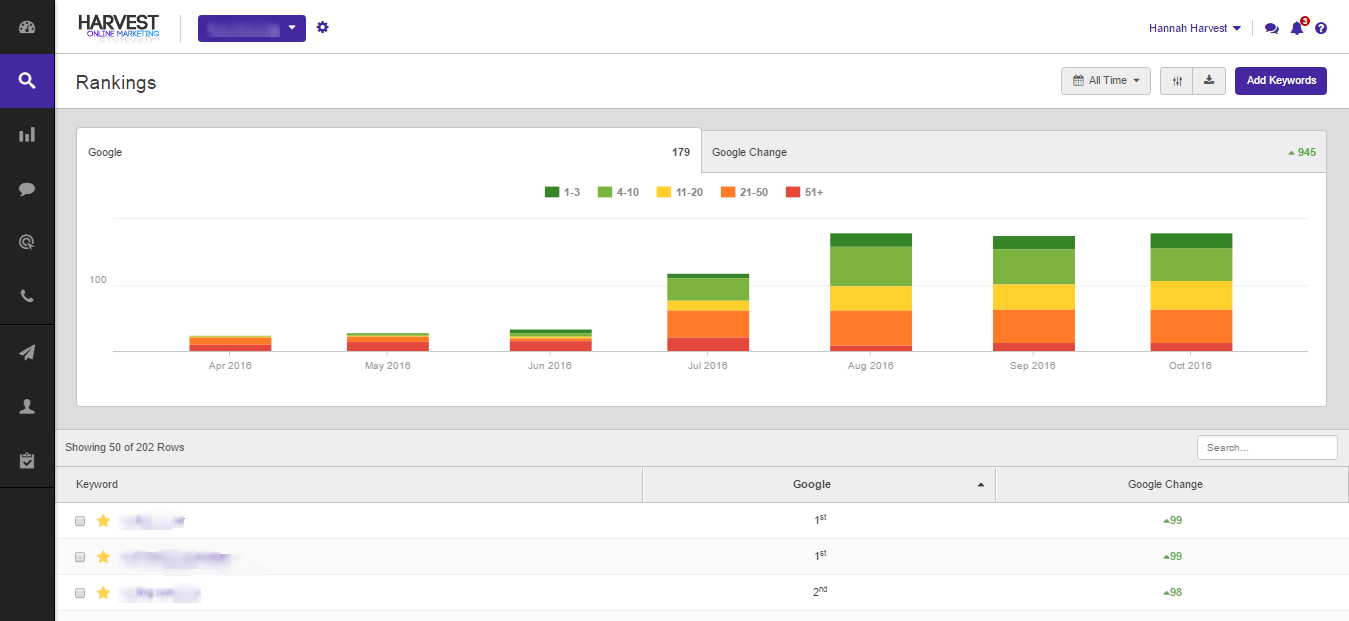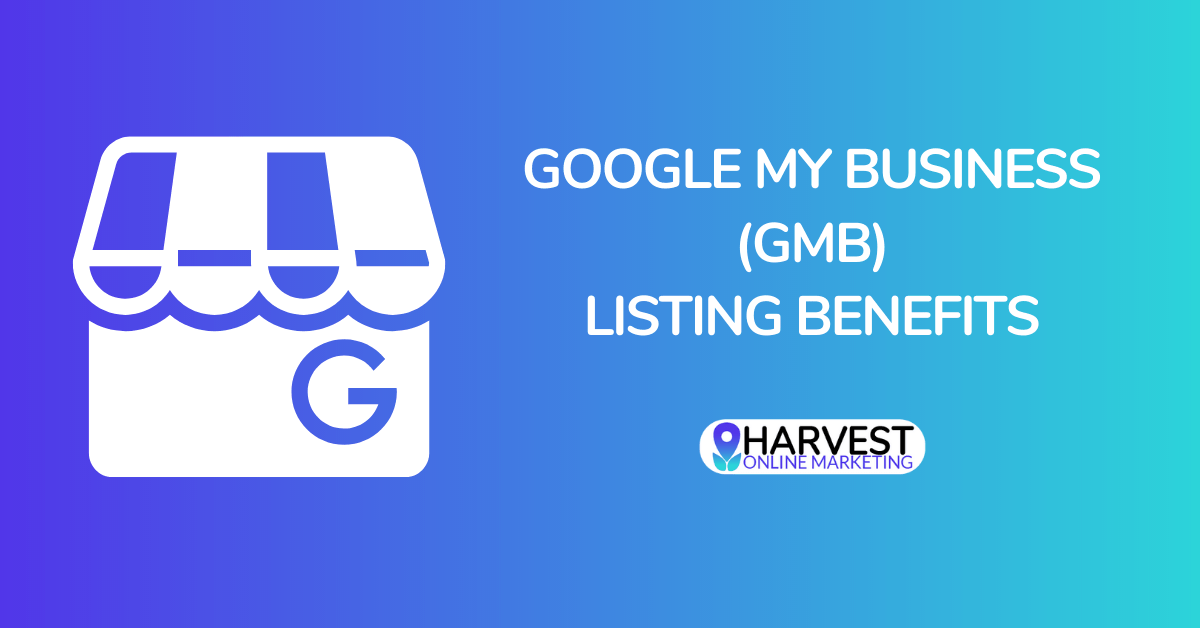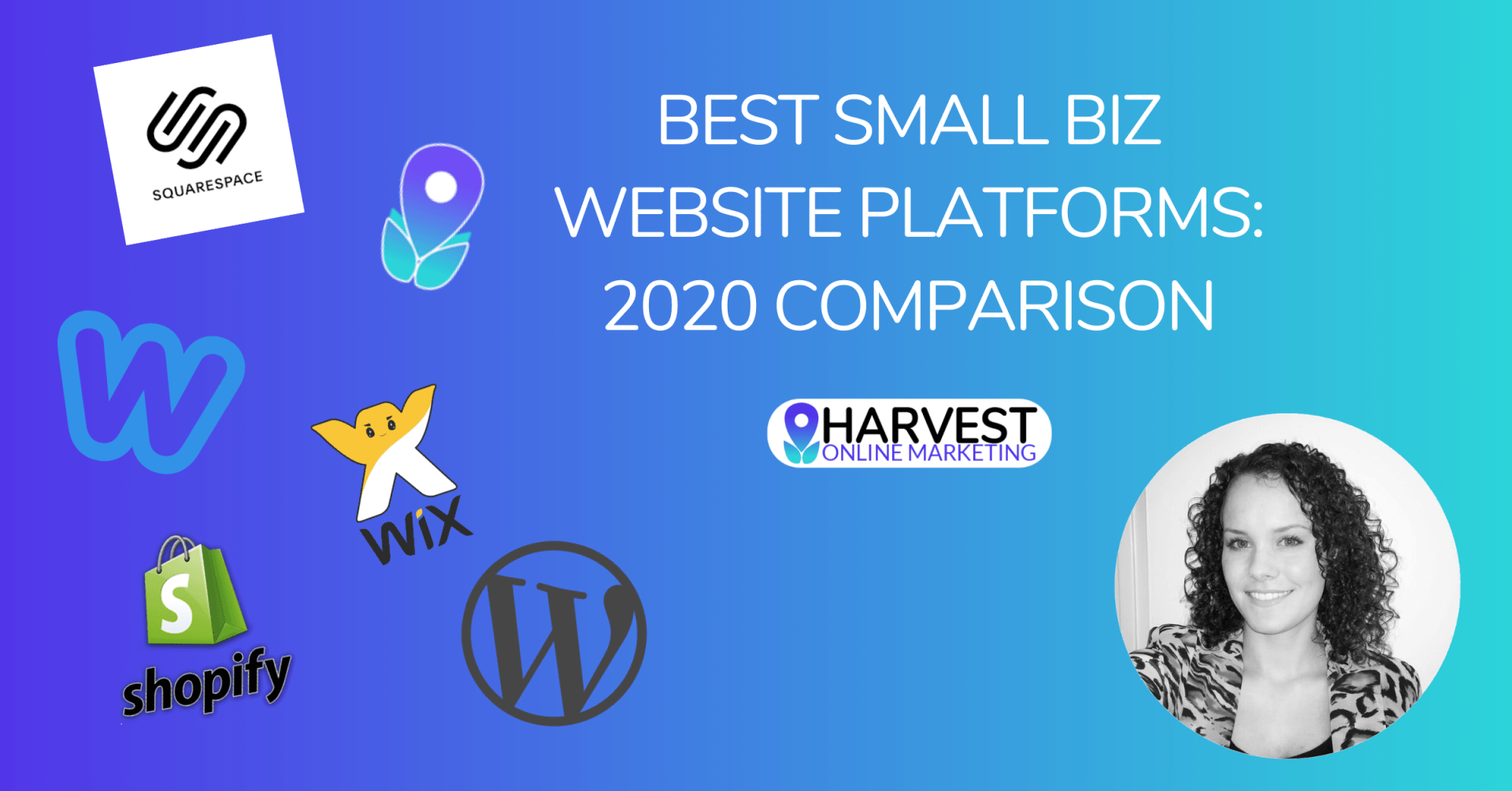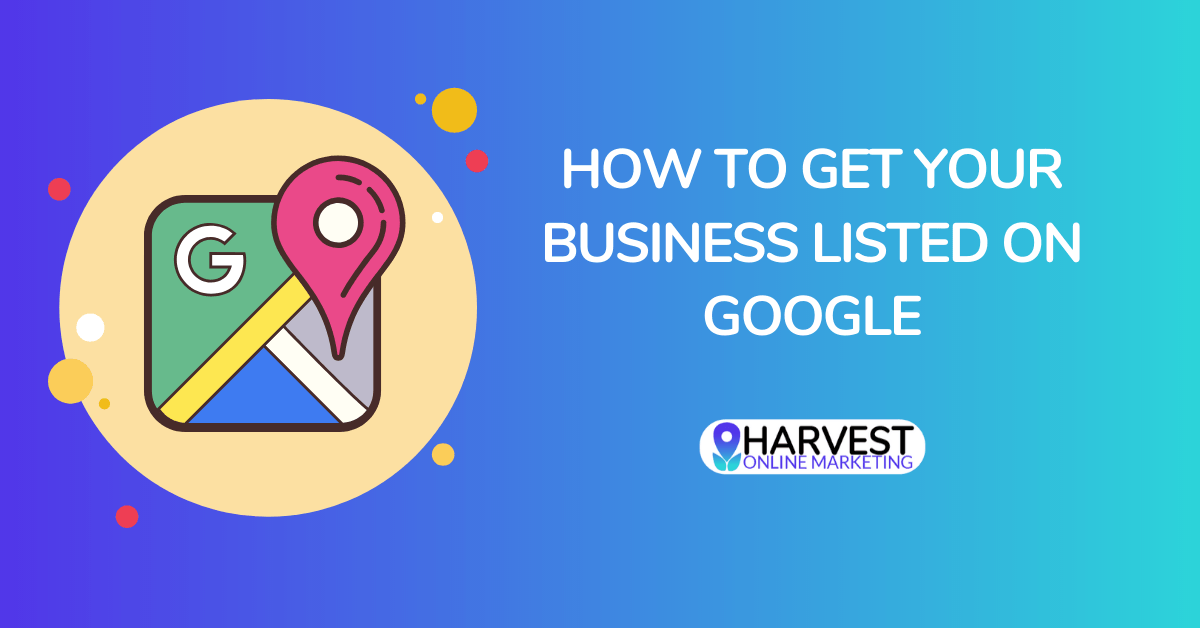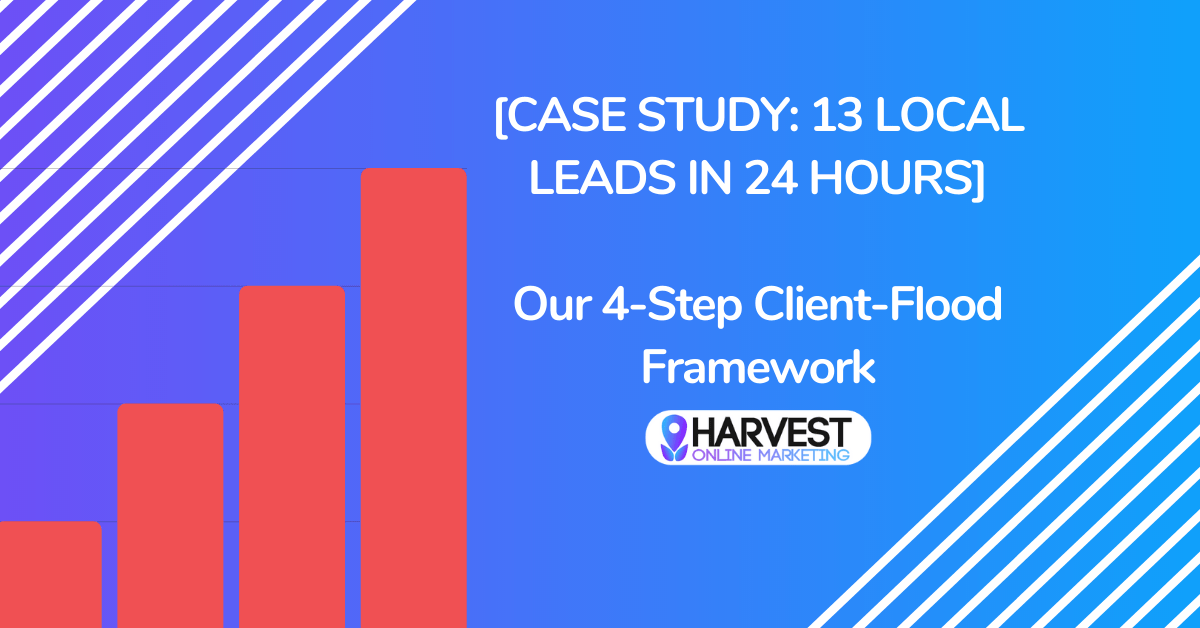
Who Needs SEO? Do YOU? SEO vs Social Media for Businesses
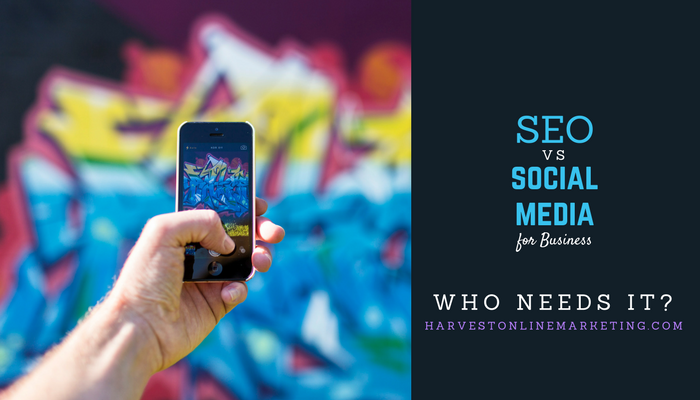
-
Hey, I'm Hannah - owner & author.
ButtonI've been helping small businesses use data and design to grow for over a decade. I hope you're next!
Do you need SEO? What about social media? What are the benefits of SEO vs Social Media for your brand or business?
If you’re reading this post, you’ve definitely asked yourself these questions, and you’re also probably somewhat aware that SEO is a bit of a complicated industry. I’m going to answer this question to help you decide in a definitive matter what optimization services can help you… or not.
SEO vs Social Media
First I want to cover the differences between SEO (search engine optimization) and social media, and what each can do for a business.
SEO, which is a form of search engine marketing , takes advantage of existing search volume and demand to show your site to people who are already searching for what you offer . Your website is marketed and optimized to display as high as it can for search phrases that are already being used by hundreds or thousands of people each month.
Social media, in which a business or brand is marketed through social channels such as Facebook, Twitter, etc, is a form of marketing that takes advantage of around-the-clock social media activity to get you in front of people who are not looking for you, but may be interested in you .
Do YOU Need SEO? (And if not.. who does?)
The short answer is that SEO is for brands and businesses that are already being searched for. It takes advantage of existing market awareness . If you’re the only one with your brand name, and your products/services are not being searched for, you don’t need it.
Here are some questions to ask yourself about your business and your website to figure out if you need SEO, or rather, if you can benefit from SEO.
- Do you have a website? (Yes)
- Are you providing a product or service? (Yes)
- Are you a local business? (Yes)
- Are you an e-commerce store? (Yes)
- Most important of all: Are people searching for what you offer? (YES)
*How can you tell if people are searching for you? A quick and easy way for anyone to check is to go to SEMrush.com and try a couple keywords that surround your services. For example, if you’re a dog groomer in a certain area/city, you can enter “dog groomer (city)”. If you’re selling athletic wear, you can search a category like “yoga pants” (spoiler alert – there is a LOT of search volume there to take advantage of.)
If nobody is searching for what you offer, you will NOT benefit from SEO!
Think about it – if you’re selling custom llama hats, how many people do you think are searching for that each month? Likely not enough to justify paying for SEO every month once you have your website set up. If you are the only one offering your services or your brand name, you will not benefit from SEO.
Again with the llama hat example – let’s say 3 people each month search for custom llama hats. If you’re the only store offering this, then as long as you have a decent website set up with the very basics, you are not going to have a problem being found.
Examples:
I once had a musician come to me wanting to purchase SEO to make sure they came up for their band name in Google. I turned them down – they were the only one with that name, so there was no problem ranking for those searches already.
On the other hand, I encourage every local business or large e-commerce brand with a marketing budget to invest in SEO. (I would do the same with smaller e-commerce brands, however it’s unlikely you’ll have the budget to go against the big guys for category-style search terms so.. sorry!) SEO is a long-term strategy that results in long-term growth, even when you stop paying for it. In a brick and mortar store, location is everything. The same is true for the first page of google, which is prime real estate.
***There is ONE exception to all of this that I feel the need to cover here..
If a creative llama-hat-maker was determined
to get more business from organic search avenues (instead of taking advantage of the ones that would probably work better with less effort), they could get creative and follow this process:
- Find llama-related keywords that people are searching for, with search intent that appears to show that the searchers own llamas,
- Create content around those keywords and rank for them,
- Sell llama hats to the llama owners that land on your website (who just didn’t know they needed llama hats until you told them.)
Who Needs Social Media?
On the other end of the online marketing spectrum is social media marketing. Instead of taking advantage of existing market awareness, social media marketing builds demand and cr eates awareness. Here is another set of questions to ask yourself is social media would be helpful:
- Does your audience use social networks? Which ones?
- Do you have the resources to maintain a (or many) social media profile(s) on those networks?
- Would social media help establish your business as an expert in its field?
- If one of your posts went viral, would it actually help you achieve your business goals , or would it simply boost your vanity metrics, aka egometrics ? *Take this with a grain of salt.. in some cases, egometrics matter, but only because the people measuring them don’t understand that they’re just egometrics.
- Can you come up with a strategy, or hire someone to come up with a strategy, to ensure your social media efforts have a positive ROI?
The simple answer here is that anyone who wants to create awareness and has the resources to do so can benefit from social media. However, not everyone needs it. Almost any brand can typically can benefit from social media if they choose to, however they usually only need either SEO or social media. If you need SEO, then you can benefit from social media as well, but it is not a requirement. If you need social media, then it’s unlikely you can benefit greatly from SEO, as long as you have your basic web presence straightened out and can be found by your brand name.
Examples:
The best example I have for this instance regarding a company that doesn’t need social media is a local services-based client who was annoyed that their competitor was getting a lot more engagement on their Facebook page. The competitor was posting animal memes (it’s an industry that deals with animals) that would get a decent amount of engagement. When we discussed the issue, the client realized they didn’t want to go whole-ham on their Facebook page after all.. because it was really unlikely they’d get any new local clients from a few viral memes. So while they made their own efforts to increase engagement on their pages, it wasn’t worth it for them to hire professional help just to keep up with the joneses for no other ROI-focused purpose other than feeling good.
Another great example of this is this company, Maven Digital, vs a band. Maven Digital needs SEO as there are many people searching for our services. We can benefit from social media, but it won’t make or break us. Because we have the resources go to whole-ham on it, we will.
On the other hand, a band, or a llama hat seller, does not need ongoing SEO beyond the basics, but should definitely be using social media . For SEO, just make sure your brand can be found everywhere for its search terms. Take advantage of new searches that you see pop up as “suggested searches” when searching your brand name. But more importantly, create awareness through social media.

We are a digital marketing agency that helps contractors get in front of their perfect customers online, and look great while doing it.




